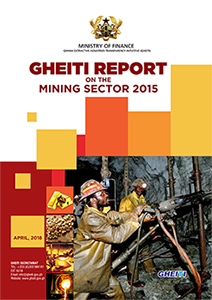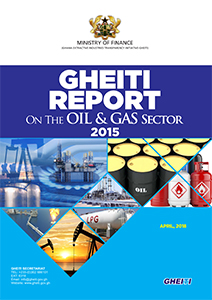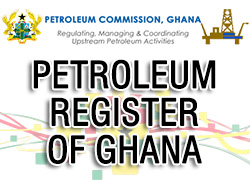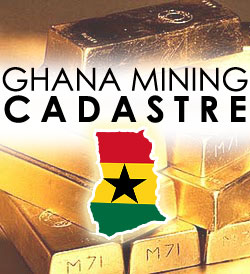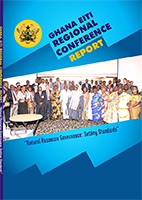| Corporate Social Responsibility (CSR) In Mining |
 |
 |
 |
|
A lot has been said on the need for businesses across the world to contribute to the development of communities in which they operate. The case is not different in Ghana, as a number of platforms have been set up to ensure it becomes practical. It is a known fact that businesses cannot succeed without the constant involvement of its major stakeholder; the masses. This is why the Corporate Social Responsibility (CSR) agenda is viewed as a vital tool to the growth and development of businesses. One may ask, what is the CSR agenda all about? The CSR agenda relates to businesses' contribution to achieving economic; social and environmental sustainability. In relation to the mining sector, for example, what the CSR agenda seeks to do is to make businesses understand the need to recognize the importance of its publics; the effective protection of the environment; the prudent use of natural resources and the maintenance of high and stable levels of economic growth and employment. The mining sector in Ghana is known to be one of the sectors which contribute immensely to the economic growth of the country. According to records of the ministry in charge of lands and natural resources, mineral exports made up of 41 percent of the country’s total export and averaged 35 percent to the mining sector and considered as one of the largest contributors in 2012. However, mining companies in Ghana earlier assigned low priority to monitoring and managing the impacts of their operations in host communities. People in mining catchment areas complained bitterly in the media on the impacts mining operations have on their lands and water bodies. A lot has changed over the years though, as mining companies are now taking up roles and responsibilities to ensure a positive impact in the host communities. Much could be said of mining companies that are either members or affiliated to the Ghana Chamber of Mines as they taken critical interest in making the CSR agenda a reality. The undertake Corporate Social Responsibility projects in order to improve the livelihood of the people in their host communities. To the Chamber of Mines, CSR is not seen as an option but a necessity that enables the mining companies to use part of their earnings to raise the quality of life in host communities. Mining companies such as AngloGold Ashanti, Newmont, Gold Fields Ghana Ltd, Golden Resources, Abosso Goldfields Ltd, Axim Inc, Birim Goldfields Inc, Ghana Manganese Company Ltd, Golden Star Resources Ltd, Chirano Gold Mine; Sandvik Mining among others contribute tremendously to the development of their host communities. A host of developmental projects has been put in place by these mining companies to see that communities in which they operate also benefit from the mining industry. It is a fact that the activities of mining companies in Ghana, to a large extent affect the livelihood of members of the communities in which they operate. Majority of people living in natural mineral prone areas, such as Tarkwa; Obuasi; Axim; Abosso and others have had to be relocated or resettled due to mine constructions. The members of these communities could have also used the lands for farming or for other income earning purposes. It is therefore a move in the right direction for mining companies in Ghana to be seen as one of the sectors that take the CSR agenda very seriously. Projects undertaken by some of these mining companies largely, seeks to deal with basic developmental issues that their host communities face. Developmental areas that mining companies are seen to pay critical attention to include, education; access to portable water; electricity; employment; health care; roads; sanitation; agriculture as well as scholarship schemes. CSR Initiatives Aside adhering to this policy, mining companies in Ghana also voluntarily undertake community sustainable development projects in their catchment areas. In 2012 alone, mining companies committed US$26 million to community sustainable development projects various communities. To these mining companies, sustainability is significant when it comes to CSR initiatives. That is why most of their projects are in the long term. Chirano Gold Mine recently launched a US$ 5.5 million four year malaria control programme to help bring down the disease in its operational area. The malaria control programme covered 13 communities in the catchment area of Chirano Gold mine. The case is not different with AngloGold Ashanti as they also launched a malaria eradication programme earlier this year. The malaria eradication programme which was earlier scheduled to cover five districts in the Western Region now cover 40 districts across the country. The five districts including Ahanta West, Tarkwa Nsuem, Prestea-Huni Valley, Ellembelle and Axim was solely financed by AngloGold at a tune of US$ 9 million. The programme entailed spraying insecticide inside of buildings to kill malaria spreading mosquitoes. Due to the success story in the five districts, the Global fund approved US$130 million funding to enable AngloGold Ashanti to expand the programme over a five year period. It is expected that by the end of the year over two million people would have benefited from the malaria control programme. The Ghana Manganese companies Ltd also contributed US$200,000 to the University of Mines at Tarkwa (UMaT) to establish hostels. They also transmitted electricity to the Tarkwa-Benso Community and again renovated feeder roads for the people of Akyempim community. As part of their CSR policy, Sandvic mining has spent US$590,000 for training of technicians at the UMaT and also spent a little over US$62,000 between 2009 and 2011 to renovate the dormitory block of the Tarkwa Midwifery Training School. Newmont Ghana in the first quarter of 2013 has distributed 1,250 solar lamps at the cost of US$ 25,000 to basic school children living around their water storage facility and resettlement communities in the Asutifi North District of Brong Ahafo. Newmont has also constructed a two-unit nurses' quarters to the people of Yawusukrom at a tune of GH? 55,000 as part of giving back to society. Gold Fields Ghana has also constructed bore holes in communities that fall under its catchment area. This has improved the lives of the inhabitants as they now have access to portable water. To date, Gold fields Ghana has invested US$20 million on various development projects in its host communities. On the part of Golden Star Resources, their community development projects include the Golden Star Oil Palm Plantation (GOSPP) foundation that seeks to promote oil palm plantation within their catchment areas. To Golden Star, agri-businesses could be used in reducing poverty and creating wealth. The GOSPP now operates with over 200 small-holder farmers and 242 part time contract workers. The projects that have been named are just part of other numerous initiatives that these mining companies have untaken in their host communities. UN Global Compact The decision made by the Ghana Chamber of Mines to have the UN Global Compact secretariat under its umbrella was a call in the right direction.This is because, members or affiliate mining companies who signed on to the initiative (UN Global Compact) are not in any way pressured by government or citizens to contribute their quota to development but rather put measures in place to this effect. Gone are the days when mining companies receive bashing from the media and government due to their failure to help improve the livelihood of communities that suffer at the expense of their activities. Mining companies in Ghana have now seen the significance of promoting the CSR agenda as well as adhering to the ten principles of the UN Global Compact in the areas of Human Rights; Labour Right; Environment; and Anti-Corruption. In this regard, mining companies through their CSR policies have contributed their quota to the growth and development of Ghana. Source: Ghana Chamber of Mines |



